Search Results for: Spiders
Skip to resultsCan’t find what you’re looking for? Visit our FAQ page.
1,175 results for: Spiders
-
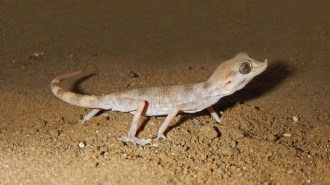 Animals
AnimalsHere’s how spider geckos survive on Earth’s hottest landscape
An analysis of the stomach contents of Misonne’s spider geckos shows there are more critters in the heart of Iran’s Lut Desert than meets the eye.
By Jude Coleman -
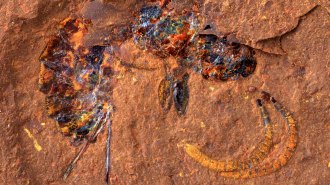 Paleontology
PaleontologySee stunning fossils of insects, fish and plants from an ancient Australian forest
Thousands of fossils at an Australian site show a rare glimpse into the continent’s wetter history over 11 million years ago.
-
 Science & Society
Science & SocietyHow some of 2021’s major science stories evolved over time
Tulsa massacre analysis and a genetically modified mosquito release are two important updates to 2021 stories.
-

The triumph and fallibility of science in a historic year
Editor in chief Nancy Shute discusses the last year in science, including lessons we've learned about COVID-19, human evolution and amazing animal feats.
By Nancy Shute -
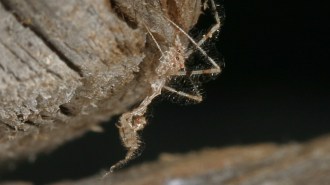 Animals
AnimalsAssassin bugs tap spiders to distract them before a lethal strike
Some assassin bugs stroke their antennae on spiders when within striking distance, possibly imitating touches that spiders experience near their kin.
By Jake Buehler -
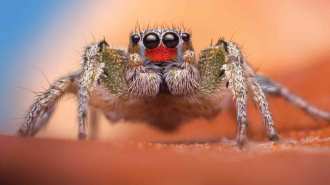 Animals
AnimalsJumping spiders’ remarkable senses capture a world beyond our perception
Clever experiments and new technology are taking scientists deep into the lives of jumping spiders, and opening a portal to their experience of the world.
By Betsy Mason -

Looking back on science can refocus our attention
Special projects editor Elizabeth Quill shares her thoughts on how the history of science can help us sharpen our focus on its future.
-
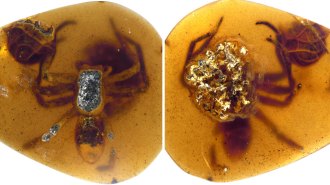 Paleontology
PaleontologyThis is the oldest fossil evidence of spider moms taking care of their young
A spider trapped in amber 99 million years ago guarded her eggs and may have helped raise her young.
By Freda Kreier -
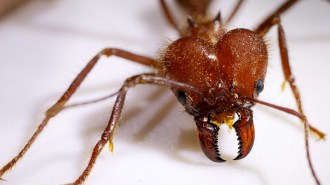 Animals
AnimalsHow metal-infused jaws give some ants an exceptionally sharp bite
Some small animals make cuts, tears and punctures that they couldn’t otherwise do using body parts reinforced with metals such as zinc and manganese.
By Jake Buehler -
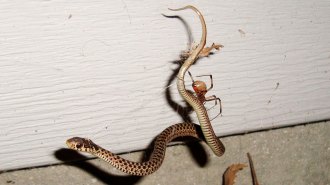 Animals
AnimalsSnake-eating spiders are surprisingly common
Spiders from at least 11 families feed on serpents many times their size, employing a host of tactics to turn even venomous snakes into soup.
By Asher Jones -
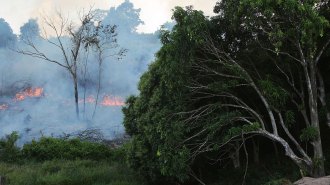 Life
LifeFires may have affected up to 85 percent of threatened Amazon species
Since 2001, fires in the Amazon have impacted up to about 190,000 square kilometers — roughly the size of Washington state.
By Jake Buehler -
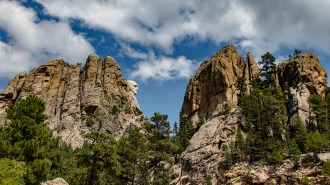 Earth
EarthA new book reveals stories of ancient life written in North America’s rocks
In ‘How the Mountains Grew,’ John Dvorak probes the interlinked geology and biology buried within the rocks of North America.